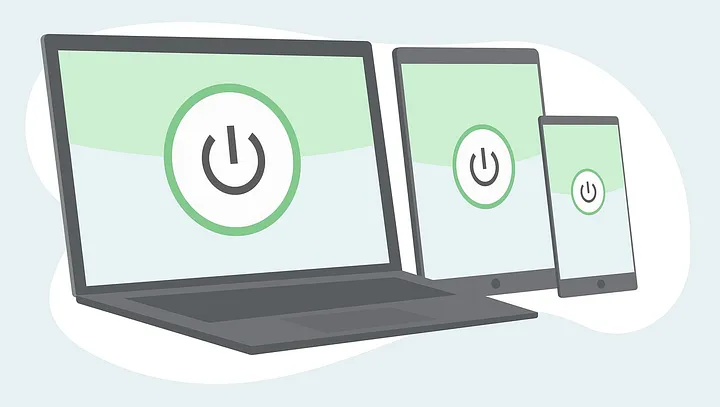When navigating the digital landscape, safeguarding personal information should be a priority. Virtual Private Networks (VPNs) play a crucial role in enhancing online security, but not all VPNs are created equal. After years of experience, I have compiled a checklist that I follow to ensure that my VPN service offers robust security and privacy features. Here’s how I evaluate and choose the right VPN.

1. Strong Encryption Protocols
One of the first things I look into is the type of encryption used by the VPN. Encryption is the cornerstone of online security as it encodes your data to protect it from unauthorized access. A VPN should offer at least AES-256 encryption, widely regarded as one of the most secure encryption standards.
In my research, I often come across VPNs that support multiple protocols like OpenVPN, IKEv2/IPsec, or WireGuard. I prefer services that allow me to choose between these protocols to find the perfect balance between speed and security.
2. No-Log Policy
Privacy is a fundamental reason I use a VPN. Many services claim to respect user privacy, but I ensure that the VPN I choose has a strict no-log policy. This means they do not record my online activities, ensuring that my browsing remains confidential.
When checking the privacy policy, I look for third-party audits or independent reports that confirm the no-log claim. The reassurance of accountability in the form of external verification is essential for gaining my trust.
3. Multi-Device Support
I often find myself switching between different devices throughout the day—from mobile phones to laptops. A VPN should offer multi-device support, enabling me to protect all of my gadgets with one account. Ideally, it should allow simultaneous connections across multiple devices without throttling their performance.
I typically seek out VPNs that offer native applications for various platforms, including Windows, macOS, iOS, and Android. Additionally, I appreciate VPNs that provide browser extensions to secure my online activities directly through the web browser.
4. DNS Leak Protection
Even the most secure VPN can leave users vulnerable if it suffers from DNS leaks. When data sent through the VPN gets exposed through DNS requests, it undermines the whole point of using a VPN. To mitigate this risk, I verify that my VPN includes built-in DNS leak protection features.
Tools such as DNS leak tests allow me to check my VPN’s reliability. A trustworthy VPN should route all my DNS queries through its own servers, ensuring that even if my VPN connection drops, my internet service provider remains unaware of my activity.
5. Kill Switch Feature
While using a VPN, I want to ensure my connection remains secure at all times. A kill switch is a critical feature that cuts off the internet when the VPN connection drops unexpectedly. This protects my data by preventing any unencrypted traffic from leaking while I am using the VPN.
I recommend thoroughly reviewing how the kill switch is implemented in the VPN application. It’s important to ensure that the kill switch activates consistently and effectively, giving me complete peace of mind whenever I browse the internet.
✅ Current deal: 🔥 Get NordVPN with up to 75% OFF! 🔥
6. Reliability and Speed
Speed is another factor that can greatly affect my online experience. I find that many VPNs can slow down connection speeds, which can be a nuisance, especially during streaming or gaming. While security is my top priority, I also require a VPN that offers decent speeds without compromising on protection.
I often conduct speed tests with various VPNs to assess their performance. Additionally, reading user reviews helps me gauge overall reliability. Consistency in performance is just as essential as security features, making it a significant aspect of my evaluation.
✅ Current deal: 🔥 Get NordVPN with up to 75% OFF! 🔥
Tips for Choosing a VPN
When selecting a VPN service, I keep the following tips in mind to ensure I make a well-informed decision:
- Research the provider: Ensure that the VPN provider has a good reputation and is transparent about its practices.
- Look for competitive pricing: While free VPNs may seem appealing, I often opt for paid services that offer more robust features and better customer support.
- Read user reviews: Assessing the experiences of other users provides valuable insights into the VPN’s performance and reliability.
- Check for transparency: Trustworthy VPNs undergo independent security audits to validate their claims.
- Test the customer support: A responsive and knowledgeable customer support team makes a difference when troubleshooting or asking questions about the service.
In summary, my journey of selecting a VPN that enhances my online security involves a thorough evaluation of key features, a focus on privacy, and an understanding of the specific needs I have as a user. By diligently following this checklist, I feel more secure while browsing the internet, allowing me to focus on what truly matters—my online activities.
Finding the right VPN has transformed my online experience, providing me with peace of mind while I navigate the complexities of the digital world. By applying my checklist and tips, anyone can take steps toward fortifying their online security using a VPN.
Affiliate Disclosure: By clicking on our links, we may earn commissions at no additional cost to you.